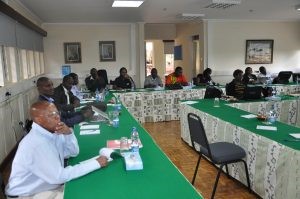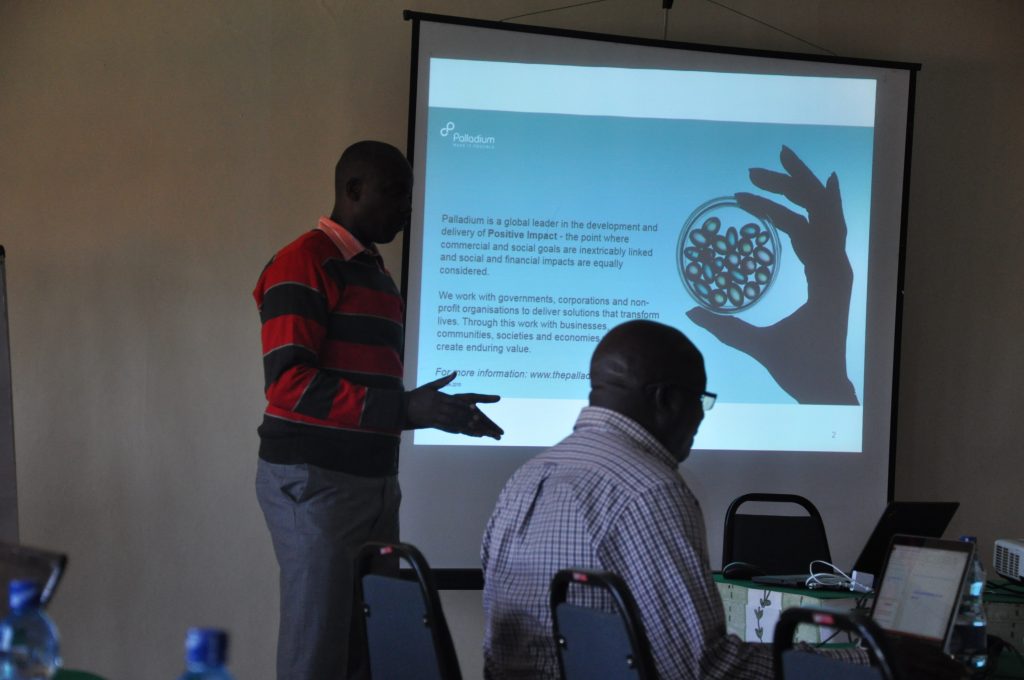TRAINING SESSIONS

Dharc has conducted various trainings in health informatics, data analytics and GIS. The information and knowledge equiped by both both National ano tools provide clinicians with key insights to make informed decisions on the delivery of care and create individualized treatment plans.
Health informatics offers operational and managerial benefits as well, such as guiding health care managers and operational teams on how to use digital tools to improve time management and resource management in hospitals of which reduces the turn around time that can be costly.

Data analytics training can strengthen the already existing efforts to lower health care costs and improve the quality of care. Data analytic technologies learnt from the trainings, enables predictive analytics typically for data-retrieval capabilities; it can extract data from sources such as EHRs, medical equipment and devices, and wearable technologies. This kind of technology also often facilitates data cleaning and risk calculation.
Trainings Offered
A. Data Analytics and Visualization for Informed Decision making
Rationale
DHARC Short Courses are expected to enhance the skills and competencies of County and Sub-county health management teams on aspects of data analytics and visualization, GIS and geospatial analytics for decision making in health, use of software MS Excel and QGIS among others, for analysis and visualization and generation of various information products.
The training utilizes the Digital Health Applied Research Centre (DHARC) and the remote sensing laboratory hosted at JKUAT. These will enables participants to have a hands-on experience in modern approaches to Data analytics, GIS and visualization of health data for decision making. Participants also benefit from post training support via Webinar
sessions accessed virtually through the DHARC.
Duration: One module each is 1 WEEK
Target Group
. County Health Management Teams
. Sub-county Health Management Teams
Learning Objectives
Apply data analytics skills in effective and efficient health service
delivery.
. Use MS Excel and QGIS for data analytics and visualization.
. Apply GIS and visual analytics in development of information products to aid decision-making.
B. Data Analytics – DDIU
Duration: One module each is 1 WEEK
Learning Objectives
By the end of this Course, the participant should be able to:
- Analyze and interpret data from varied sources e.g. DHIS, HR data, Commodities, Finance, etc. and interrelate what the data shows
- Draw conclusions and make recommendations for health service management
- Outline the different mechanisms that are used for effective information dissemination
- Understand key concepts in data demand and information use
- Describe the determinants and barriers to information use
- Explain the decision-making processes
- Promote data based decision-making in an organizational context
Target Group
This Program targets the following:
- County Governors
- County Executive Committee of Health
- County Director of Health
- County Officer of Health
- County ICT Committee Members
- County Health Management Team (CHMT) members
- Health Program Coordinators/Managers
- County Assembly Health Committee Chair
C. GIS for Decision Making in Health
Duration: Three modules each is 1 WEEK
Learning Objectives
By the end of this Course, the participant should be able to:
- Recognize the value of GIS applications within a health geography framework
- Develop an awareness of health (socio-economic/environmental) related spatial data sources, data types, spatial resolution and data limitations
- Identify key GIS concepts and techniques, including statistical techniques, relevant to GIS applications in health
- Provide practical experience using GIS to undertake spatial investigations of health and health care issues through visualization and spatial and statistical analysis of data to better inform health policy related to these issues
- Apply GIS in solving issues that would result in the improvement of health care in the Counties.
- Use mapping and visualization process of various health indicators at facility and county level.
- Explore spatial analysis concepts that will support the decision making process at county level.
Target Group
This Program targets the following:
- County Governors
- County Executive Committee of Health
- County Director of Health
- County Officer of Health
- County ICT Committee Members
- County Health Management Team (CHMT) members
- Health Program Coordinators/Managers
- County Assembly Health Committee Chair
D. Health Informatics – HI
Duration : One module for 1 Week
Learning Objectives
By the end of this course, the participant should be able to:
- Describe organizational factors affecting uptake and utilization of health informatics.
- Understand and apply the principles and state-of-the-art developments in health informatics.
- Evaluate the application and use of health information tools, resources and technologies in health systems
- Describe strategies for improving quality of health data.
- Describe the legal, social, ethical and professional obligations in managing health information systems and resources.
- Understand fundamentals of distance teaching methods and technologies in training and health workforce development.
Target Group
This Program targets the following:
- County Governors
- County Executive Committee of Health
- County Director of Health
- County Officer of Health
- County ICT Committee Members
- County Health Management Team (CHMT) members
- Health Program Coordinators/Managers
- County Assembly Health Committee Chair

